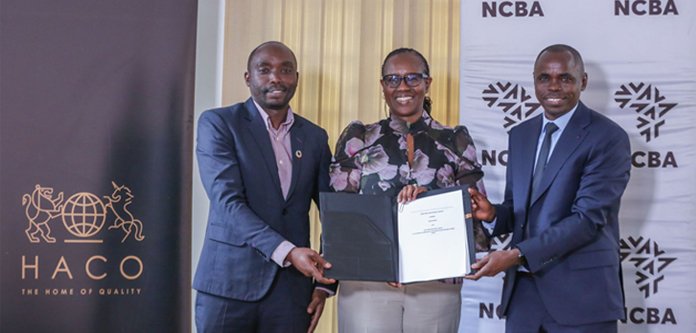In a transformative step for sustainable industry in Africa, Haco Industries Kenya Limited has commissioned the second phase of its groundbreaking solar installation, powering nearly 60% of its Home and Personal Care (HPC) production line. With the addition of 311 new solar panels, generating 180 kWh, Haco solidifies its position as a pioneer in green manufacturing in Kenya and the wider East African region.
This bold move falls under the company’s ambitious Chasing Zero Initiative, aimed at achieving zero waste, zero emissions, and ultimately net-zero operations. Spearheaded by Mary-Ann Musangi, the Sustainable Manufacturing Executive and Champion of Environmental Sustainability, the initiative is a rallying call for the continent’s private sector to treat sustainability as both a climate imperative and a business strategy.
“Sustainability is not a buzzword—it’s a business imperative and a legacy we’re proud to build,” said Mary-Ann in her announcement on LinkedIn. “Let’s keep innovating, inspiring, and powering change—one solar panel at a time.”
A Measurable Leap Toward Net-Zero
The newly commissioned solar expansion complements Haco’s existing renewable infrastructure, and now positions the company to meet over half of its energy demand for the HPC line through clean energy. This operational transformation is expected to drastically cut carbon emissions, reduce reliance on grid electricity, and enhance energy resilience, all while minimizing operating costs.
The installation is a strategic response to Kenya’s increasing energy demands and climate challenges. As industrial players across Africa face pressure to decarbonize, Haco’s solar investment offers a replicable model for low-carbon industrial operations that also deliver financial savings and brand value.
Strategic Sustainability with Business Benefits
This isn’t merely a feel-good green project; it’s part of a larger corporate strategy that recognizes the interlink between profitability and planetary responsibility. By investing in renewable energy, Haco not only strengthens its environmental credentials but also positions itself as a resilient, future-proof manufacturer able to weather rising energy prices and supply fluctuations.
It also sends a powerful message to investors, consumers, and policymakers that African industries are ready to lead in the clean energy transition. In many ways, Haco’s bold pivot is symbolic of a broader shift in the African industrial mindset—from reactive environmental compliance to proactive sustainability leadership.
Chasing Zero: More Than a Slogan
Haco’s Chasing Zero Initiative represents a holistic vision for sustainability that goes beyond energy. The program targets zero waste generation, emissions reduction, and circular production systems—core elements aligned with global ESG (Environmental, Social, and Governance) standards.
The company is also working on waste valorization, responsible sourcing, and water efficiency, making it one of the few East African firms embedding sustainability into its manufacturing DNA.
A Call to Action for Africa’s Industrial Sector
As the continent gears up to meet the challenges of climate change, energy insecurity, and rapid urbanization, Haco’s solar success story is a timely reminder of the opportunities in the renewable energy transition.
Haco says “This is just the beginning, It not just reducing emissions; it is rewriting what modern African manufacturing can look like.
Industry experts agree that the scalability of solar and other renewables could unlock new potential for job creation, cost efficiency, and environmental stewardship across Africa’s booming manufacturing sectors.
According to renewable energy experts, more companies following Haco solar installation model could see significant emissions reductions across the continent. “This is leadership in action.”
What’s Next?
With phase two completed, Haco is expected to explore more advanced energy monitoring systems, battery storage solutions, and employee training programs to integrate sustainability deeper into its corporate culture.
The move has already inspired other regional manufacturers to consider similar paths, and the firm is reportedly in talks to share best practices through industry roundtables and green partnerships.
The Haco solar installation is more than just a facility upgrade—it’s a beacon of innovation, resilience, and climate optimism in African manufacturing. In a world grappling with environmental challenges, Haco has chosen action over rhetoric, showing that the future of African industry is not just electric—it’s sustainable.
